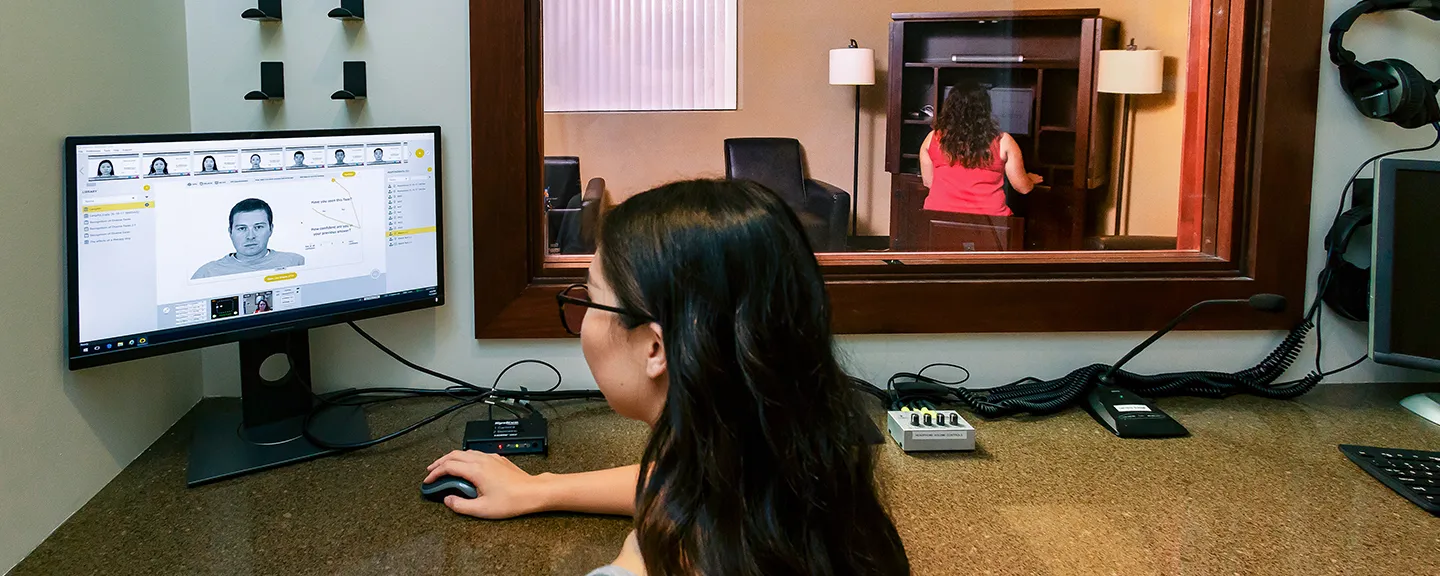- Home
- >
- APU Articles
- >
- News Article
Why Research Opportunities in College Create a Strong Overall Experience
November 01, 2021 | Written By Tobin Perry

Research opportunities in college can be a great benefit, no matter what’s ahead in your career pursuits. Here’s what to know about these opportunities and how to make the most of them.
Why Research Connects Students to Faculty Mentorship
Evelyn Allen, MS ’19, called her research experience one of the highlights of her master’s degree program at Azusa Pacific University. As she pursued a Master of Science in Research Psychology and Data Analysis at APU, she worked on an original research project as part of her thesis.
The program is designed so students obtain in-depth research experience with support from a faculty mentor. “We prioritize a one-on-one pairing of graduate students and faculty members because every student comes in with their own interests, goals, and backgrounds,” said Julianne Edwards, PhD, program director.
“Faculty are able to individualize their mentoring to assist the student, so they not only complete their project but also learn new methods and statistics along the way,” Edwards said. “At the same time, the faculty mentor helps students create a plan for their future and prepare for either applying to PhD programs or getting a job in their field.”
During this process, Allen’s faculty advisor, Brian Collisson, PhD, helped her narrow her areas of focus and pursue a unique research angle.
“We started by simply talking about what interested me and what I was most curious to explore, and from there we designed and executed an experiment to study the effectiveness of role models in college marketing materials,” Allen said. “That study became the focus of my master’s thesis.”
Why Research Opportunities in College Matter
Collisson notes that engaging in research is a fantastic way for students to gain and apply skills valued by many graduate programs and future employers, such as critical thinking, creativity, statistical analysis, and communication.
Allen also pointed to a number of benefits of her research opportunities in college. First, she was able to publish her study in the Journal of Marketing for Higher Education. “I’m really proud of that accomplishment and the support I got in my program and from my mentor, which enabled me to contribute to the body of research in my field,” she said.
Allen then presented her research at a psychology conference and at an annual conference hosted by APU. She noted that she also loved engaging in the classroom with fellow students who were researching diverse topics, ranging from clinical psychology to medical interventions to human resources management in organizations.
“Those perspectives were valuable and energized my own thinking about how to apply research to study problems, investigate trends, and find evidence-based solutions,” Allen said.
Why APU Is a Great Fit for Research-Minded Students
Whether you’re an undergraduate student or a graduate student, APU provides a variety of opportunities to participate in research.
In fact, APU has been recognized for its efforts in supporting research-minded students. The Carnegie Classification of Institutions of Higher Education classified APU with the prestigious R2 designation. Carnegie, the most influential rating organization among colleges and universities, rates universities on an R1 to R3 system.
To qualify for R1 or R2 classifications, colleges need to award at least 20 research/scholarship doctoral degrees and have at least $5 million in total research expenditures. Although R1 universities have the highest level of research activity, their faculty members are often so heavily focused on research that they typically depend on graduate assistants to teach classes. R2 universities, like APU, have faculty who are deeply involved in research yet are still able to teach their own courses and involve students in their research projects.
“Collaborating with students is one of the best components of my job,” said Collisson. “As a social psychologist, I love working closely with students to design studies that address timely and meaningful issues about relationships. Without fail, my student collaborators always bring a creative and unique perspective to psychology's unanswered questions.”
At APU, faculty in every discipline are engaged in research, and they frequently invite undergraduate and graduate students to take part in that research. “When faculty engage students on their research teams, it gives us an opportunity to build even deeper relationships with our students at the undergraduate or graduate level,” said Edwards. “Seeing students thrive and grow from their research experiences is a very meaningful part of our role.”
It’s common for APU students to be part of a collaborative research team and be included as an author on a published study. This can be a distinguishing factor for students who are headed to graduate school or entering a competitive career field.
Learn more about Azusa Pacific University’s R2 designation and what it means for students interested in exploring research opportunities.